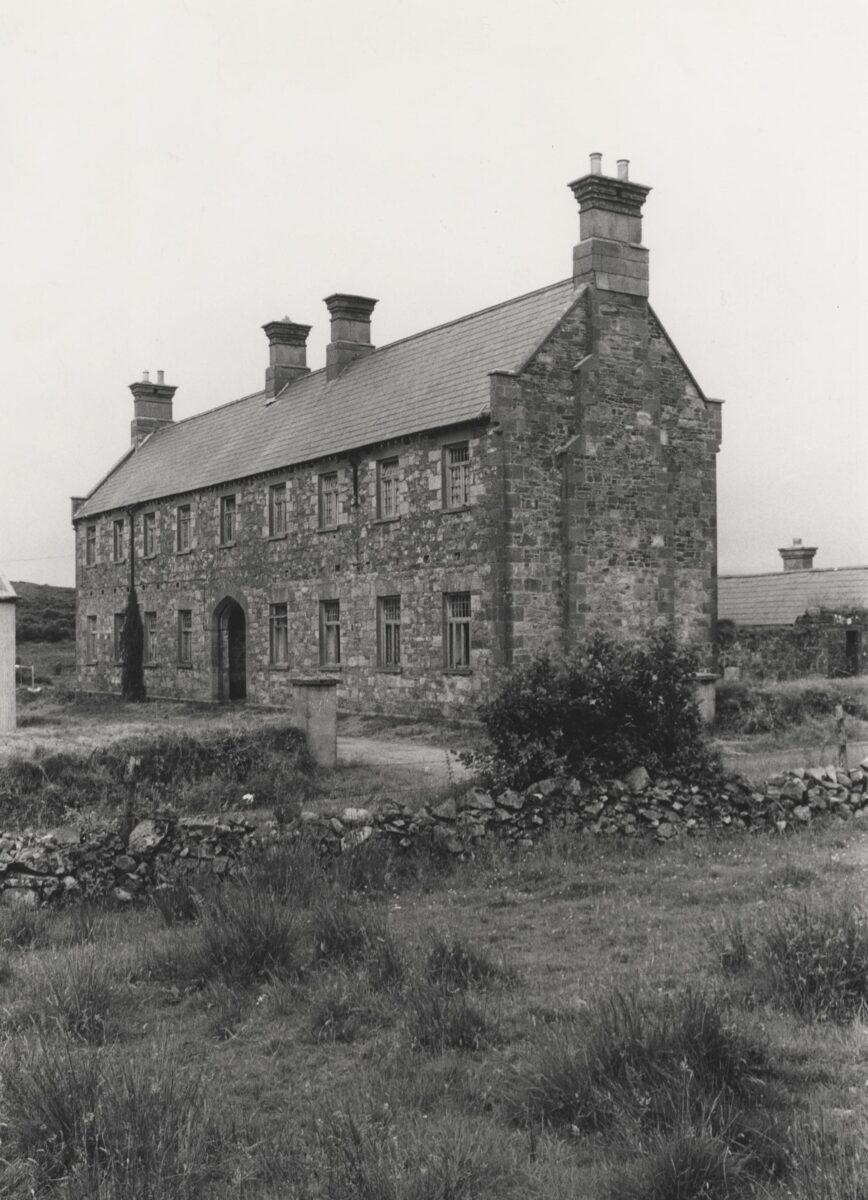Featured image: Milford Workhouse Fever Hospital courtesy of the Irish Architectural Archive
As Milford prepares to host the National Famine Commemoration this Sunday, we take a look back at some of the lasting reminders of the Great Famine:
It’s difficult to imagine what our ancestors went through over 175 years ago during one of the darkest periods of our history, the Irish Famine. It was at a time when millions across the island found themselves starving, sick and displaced with tough decisions to make. Some had no choice at all. Many of us are here today because some of our ancestors survived the hardships and losses and forged new lives for themselves either here or in other parts of the world. Unfortunately, many did not, and on May 21st 2023 we commemorate all those who suffered and died during what became known as the Great Famine.
The National Famine Commemoration Committee was first established in 2008 following a Government decision to commemorate the Great Irish Famine with an annual national famine memorial day. The Committee is chaired by Catherine Martin T.D., Minister for Tourism, Culture, Arts, Gaeltacht, Sport and Media and is made up of representatives from the Department of Education, the Department of Foreign Affairs, the Department of Defence, representatives from the Defence Forces, Department of An Taoiseach, Irish Aid, representatives from Trócaire and Gorta, historians, the National Museum of Ireland and other interested parties. The annual national commemoration revolves between the four provinces of Ireland. In 2023 the event will take place in Ulster at the site of the former workhouse in Milford, Co. Donegal.
In Donegal there was a workhouse in each of the eight Poor Law Unions namely, Carndonagh, Dunfanaghy, Milford, Letterkenny, Stranorlar, Glenties, Donegal Town and Ballyshannon. For many, being forced to spend time in the local workhouse was regarded as the ultimate humiliation. Nonetheless, many people were driven there by desperation or following eviction. Some people spent short periods of time there; others were born, gave birth or died there.
The onset of famine in 1845 tested the poor relief system to its limits as more and more people tried to gain admittance to the workhouses. Many workhouses were forced to build extra accommodation. Supply of food was a desperately slow process. In August 1846 the Glenties Board of Guardians stressed the urgency of obtaining Indian meal through local ports:
The[re has been a]…. general and total failure of the potato crop throughout the union. Seeing every field and garden quite decayed and the tops withered down to the earth and in some places the people obliged to dig fifty or sixty yards before they can get a sufficient quantity of sound potatoes for one meal for a small family…..and [they] not fit for [work].
Relief granted to individuals was deemed to be a loan. However, in 1847 when the Famine was at its height, the right to relief of the destitute poor was recognised by law. At this time, to relieve some of the pressure from the workhouses, outdoor relief was sanctioned.
Life in the workhouse was not easy. It was lawful for the Board of Guardians to punish ’refractory’ paupers for prescribed offences. These included absconding and abandoning family in a workhouse, drunkenness, insubordination to the officers of the union, disobedience of the rules prescribed or sanctioned by the Commissioners’, and for misbehaviour such as ‘attempting to introduce spirituous or fermented liquors into any workhouse’.
In the early years, the diet in the workhouse was monotonous, unwholesome and wholly inadequate as a letter from the Poor Law Commissioners concerning the Glenties workhouse testifies.
The Commissioners have communicated with their medical inspector Mr Phelan who is also of opinion, that the sameness of the proposed dietary is objectionable. He states that stirabout three times a week with buttermilk each time, tends to cause diarrhoea, especially if the Indian meal be not well boiled. 22 November 1849.
Workhouse food improved over the years, with the gradual introduction for adults and children of food with more protein and vitamins including bread, meat, eggs, milk and vegetables.
Even though being forced to stay in the local workhouse was regarded as the ultimate humiliation, many of us would not be here today if they were not in existence. They offered shelter and food at a time of desperation to many.
For more information on the National Famine Commemoration and related records held by Donegal County Council please visit https://www.donegalcoco.ie/culture/nationalfaminecommemoration2023/
Tags:







